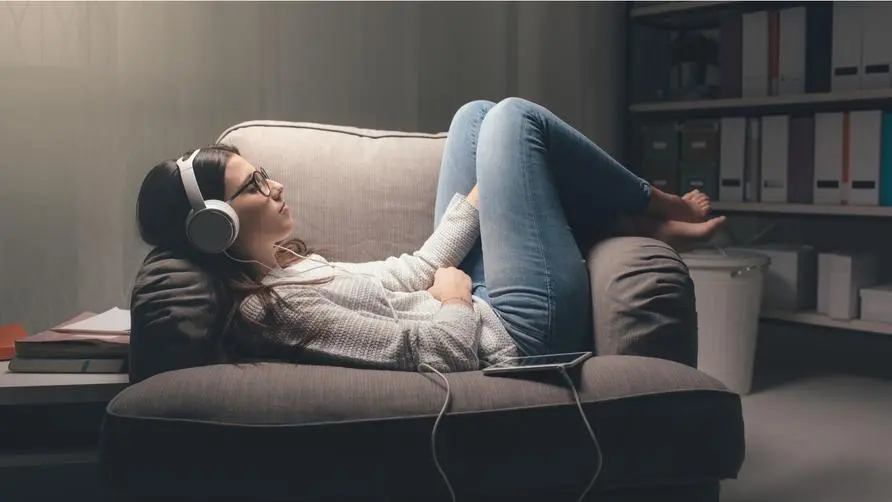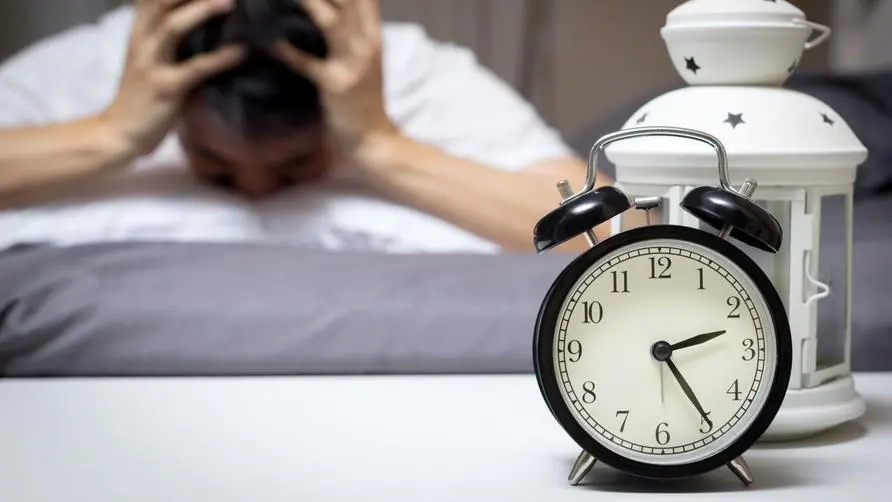Can't get the melody out of your head? If you listen to music before going to bed, you may be disturbed by "earworms" all night long. Do these things to help you fall asleep!

Music is one of the oldest and purest art forms. Human beings still love music today. You can see pedestrians wearing wireless headphones in the streets and alleys, immersed in their own music. Since the rhythm of music is similar to the heart rate, many people think that listening to some music before going to bed can help them sleep. However, for some people, music may be a kind of “noise” in life, which will affect the quality of physical rest. Research from Baylor University in the United States believes that listening to music to sleep does not actually help sleep.
Listening to music before going to bed makes it more difficult to fall asleep. Listening to songs without lyrics is even more serious.
Michael. Associate Professor in the Department of Psychology and Neuroscience at Baylor University. Michael Scullin pointed out that he sometimes realizes in the middle of the night that there is a piece of music playing on a loop in his head, which keeps him awake at night. In order to understand the origin of this phenomenon, he and his research team took the “earworm” phenomenon (English called earworm, which refers to the phenomenon of a certain piece of music being repeated continuously in the brain) as the research theme, trying to analyze whether music affects sleep quality.
The team gathered 209 subjects, and 50 of them played popular songs before going to bed, and recorded their brain waves, heart rate, breathing rate and other data. The research team also randomly replaced the songs with non-interrupted ones. Electric version to explore the extent to which the earworm phenomenon affects subjects.
The results showed that a large number of subjects developed earworms due to listening to music before going to bed, which made their sleep quality worse, longer periods of light sleep, and more frequent awakenings. People who have the habit of listening to music have more difficulty falling asleep if earworms occur at night than other subjects. Troublingly, even when the music is turned off, the brain continues to process it for hours. Skarlin said that subjects who often experienced earworms before going to bed were six times more likely to have poor sleep quality than others.
In addition, most people may think that music with human voices is more likely to cause interference. However, this study found that songs without lyrics were more likely to disrupt sleep quality than songs with lyrics, which was beyond the research team’s expectation.
Get rid of the haze caused by insomnia and do “cognitive activities” before going to bed to effectively reduce stress.
Skarlin believes that if you want to get rid of the troubles caused by earworms, you can do “cognitive activities” before going to bed. What is cognitive activity? For example, writing down tomorrow’s work items before going to bed can effectively reduce work stress and improve sleep quality. In addition, reading, meditation, etc., which can concentrate the brain, are also cognitive activities that help sleep. On the contrary, watching TV, playing video games or listening to music before going to bed will only disrupt the biological clock and cause blue light to damage vision, which is one of the culprits of reduced sleep quality. If you don’t want to roll around in bed and think about things all night, you should try to turn off all electronic products.
Modern people are under high work pressure and have encountered epidemic outbreaks in recent years. Everyone is living under the threat of the virus. Worry and insomnia may be inevitable. Everyone’s physique is different. If you fall asleep peacefully as soon as you listen to music and don’t have problems such as dreaming and waking up, then it doesn’t hurt to listen to music before going to bed. But if other habits, such as eating late-night snacks before going to bed, scrolling on mobile phones, etc., lead to a decrease in sleep quality, you really need to pay close attention. In particular, long-term lack of sleep will increase the risk of heart disease and stroke, and may also lead to memory loss in old age. faster, increasing the risk of Alzheimer’s disease. Once you find that you have a serious sleep disorder, remember to contact your family physician as soon as possible to seek better help.
source:
Study ties poor sleep to reduced memory performance in older adults
Poor sleep is associated with ischemic heart disease and stroke





